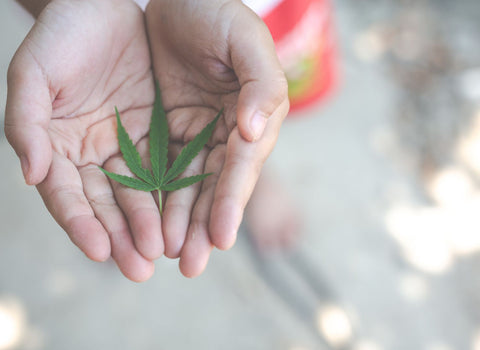
Small amounts of cannabis may boost brain function without getting the user high. A 2017 study on mice revealed how low doses of Delta 9 THC aid brain function, restore learning capability, and improve memory.
Cannabis microdosing involves taking small amounts of THC to reap its health benefits without the side effects. Unlike higher doses that cause impairment, our cannabis edibles offer a safe and reliable cognitive boost.
What are cannabis edibles?
Edibles are cannabis products that contain small, precise amounts of THC, cannabidiol (CBD), and other cannabinoids and terpenes. All of our products contain microdoses of these compounds, which makes them one of the safest and most reliable methods of cannabis consumption. Try them as delicious gummies infused with real fruit or as cannabis-infused mixers.
Our low-dose cannabis products can enhance your cognitive function. If you’re looking to reap the health benefits of cannabis, here’s why our edibles are your safest bet:
- Precise dosing: Our edibles contain between 2 and 10 milligrams of THC per serving. These microdoses allow for accurate and consistent consumption because you know exactly how much you're consuming every time.
- Healthier consumption: Ingesting cannabis avoids the lung damage associated with smoking or vaping. Edibles are safer for regular use, especially for people who consume cannabis for medical purposes.
- Controlled release: Edibles provide a slow, steady release of compounds into your system. The effects of gummies typically begin between 30 minutes and two hours after consumption and can last up to six hours. You can feel the effects of our cannabis drinks almost as long as the gummies, but they kick in faster.
- Pure ingredients: Our products contain only natural flavors and ingredients, free from toxins, pesticides, or heavy metals that could interfere with cognitive benefits.
- Enjoyable experience: The delicious flavors of our gummies make microdosing a pleasant part of your routine. Unlike the harsh experience of smoking or the clinical feel of oils, our tasty edibles transform the act of cognitive enhancement into a moment of subtle indulgence.
When you choose our carefully crafted and third-party tested edibles for your microdosing regimen, you're opting for a safe, reliable, and enjoyable experience every time. Many people associate cannabis with getting high, feeling spaced out, or experiencing memory lapses, but these effects stem from unreliable consumption methods and excessive amounts.
Our precisely dosed edibles bypass these negative effects, allowing you to enjoy the benefits without compromising mental clarity. For example, our Energy THC gummies offer a well-balanced ratio of 2.5 mg of THC and 5 mg of CBD to perk up your memory, give you a natural energy kick, and keep your brain firing on all cylinders.
Benefits of cannabis microdosing for memory enhancement
Microdosing THC is much safer and beneficial for the brain. Cannabis has potential therapeutic uses, but higher amounts are risky for your cognitive function. Microdosing cannabis can:
- Improve working memory
- Improve learning capacity
- Reduce brain fog
- Increase focus
- Boost creativity
- Offer neuroprotective benefits
One: Working memory enhancement
Working memory is the brain's ability to temporarily hold and manipulate information for complex cognitive tasks. According to a 2022 study, Delta 9 THC improved short-term spatial working memory in mice with traumatic brain injury. This improvement was associated with the upregulation of certain neurotrophic factors in the hippocampus, cerebral cortex, and striatum (brain regions involved in memory formation and cognitive processing).
The THC-treated mice showed marked improvement in Y-maze performance, indicating a reversal of working memory deficits caused by brain injury.
Two: Improved learning capacity
Small doses of THC and CBD may give your brain a learning boost. These compounds interact with your endocannabinoid system (ECS) to enhance neuroplasticity (your brain's ability to form new connections). THC interacts with the receptors in the ECS to increase dopamine. This neurotransmitter plays a role in motivation and reward-based learning. Increased dopamine enhances focus and attention, making it easier to absorb and retain new information.
A 2023 study showed that a “low THC dose improved learning and cognition, suggesting dose-dependent effects of THC in vivo.”
In combination with CBD, THC promotes neurogenesis in the hippocampus where you form memories. Together, they improve focus, reduce anxiety, and support better sleep—all crucial for consolidating new information.
Three: Reduced brain fog
Tired of foggy focus wrecking your productivity? Cannabis microdoses help you squeeze more out of your day by boosting your productivity and reducing brain fog. Here’s how:
- THC and CBD interact with the ECS to improve focus and mental clarity. This interaction regulates neurotransmitter release and neural activity to promote a more balanced and alert mental state.
- Boosted neurotransmitters such as dopamine and serotonin improve mood and enhance cognitive function, which helps think more clearly and process information more efficiently.
- Low cannabis doses reduce inflammation in the brain. Inflammation is a major contributor to mental cloudiness and sluggish thinking.
Experience cognitive clarity with our Euphoria gummies, featuring a precise balance of CBD and THC (10 mg of each) to combat inflammation and optimize neurotransmitter function.
Four: Increased focus and attention
Microdoses of cannabis sharpen focus and boost productivity. They gently modulate activity in the prefrontal cortex to enhance blood flow and stabilize neural connections. The result? A boost in attention, mental flexibility, and the ability to filter out distractions.
This is encouraging news for those dealing with attention deficit hyperactivity disorder (ADHD). A large study with 1,700 participants found that the combination of THC and CBD improves the symptoms and addresses some of the brain signaling issues at the root of ADHD.
Five: Creativity boost
Low doses of THC enhance creative thinking without causing impairment or intoxication. Microdosing cannabis breaks down mental barriers, allowing for more flexible and innovative thought patterns. A 2012 study by Gráinne Schafer's research team found that, for 160 participants with "low creativity," 5 mg of THC increased verbal fluency and divergent thinking to the level of the "high creativity" group.
While higher doses can hinder creativity, small amounts harness the potential of cannabis to boost creative output safely and effectively. Read more about the best strains that boost creativity and cognitive performance (Hint: It’s hybrid strains.).
Six: Neuroprotective properties
Small doses of cannabis might shield your brain from damage and decay. Research shows that microdosing THC and CBD can kickstart the growth of new brain cells (neurogenesis), especially in areas crucial for memory.
Mahdi, et. al. posit that cannabis may prevent and treat neurodegenerative diseases such as Alzheimer's and Parkinson's. THC and CBD also calm brain inflammation, a common culprit in cognitive decline.
Are you considering cannabis microdoses to protect your brain and boost cognitive function? Our THC gummies are a convenient, precisely dosed option to explore these potential benefits. With just 0.3% hemp-derived THC by dry weight, our edibles are federally legal.
Product QUIZ
Need help deciding what product is best for you? Take our quiz, just three questions until your perfect match!
Why are excessive amounts of cannabis bad for the brain?
Heavy long-term cannabis use is associated with a decline in cognitive functions such as:
- Difficulty forming new memories and recalling recent events
- Slowed cognitive processing and reaction times
- Reduced ability to acquire and retain new information
- Shortened attention span and increased distractibility
- Trouble maintaining focus on tasks for extended periods
- Decreased ability to resist immediate gratification or regulate behavior
- Impaired judgment and risk assessment capabilities
- Difficulty adapting to new information or changing tasks quickly
- Potential issues with navigating and judging distances
These negative effects can linger for weeks and even months after you quit, especially if you've been overdoing it for years. Research by Volkow, et. al. shows that regular cannabis use can damage specific brain areas crucial for memory and cognitive function. Adults who were heavy smokers during their teenage years show reduced neural connectivity in brain regions responsible for alertness, learning, and memory.
The evidence shows that chronic exposure to high doses of THC can have long-lasting neurological impacts.
On top of the genuine cognitive damage, excessive cannabis use can be a recipe for mental health troubles. Research has linked heavy use to increased risks of psychosis, disrupted brain rhythms, and potential mood disorders such as depression and anxiety. While higher doses may exacerbate mental health issues, low THC doses alleviate many symptoms of mental disorders.
That's why our Bliss gummies contain low, balanced doses of THC and CBD (5 mg each) to offer neuroprotective benefits without risking cognitive impairment. Order from nama™ and learn how to strike a balance between therapeutic effects and the pitfalls of excessive cannabis use.
“This gummy absolutely helped me unwind after a long physical day's work… Only half of the tiny gummy had me in a state of relaxation, motivation, and overall happiness.”
—Jams
The best dosage for memory enhancement
If you want to boost memory and brain function, less is definitely more. The sweet spot for THC dosage lies between 2 and 10 milligrams, precisely what you'll find in our gummies and cannabis-infusing drinks. These microdoses are calibrated to stimulate your endocannabinoid system without overwhelming it. At these low levels, THC subtly optimizes your brain performance.
Order our low-dose cannabis gummies and drinks
Forget unreliable corner store options and questionable brands. Choose nama™, your trusted source for safe, effective cannabis products designed to support cognitive function and overall health.
We offer meticulously crafted, third-party-tested gummies and cannabis-infused beverages made with organic, non-GMO ingredients, free from pesticides and harmful chemicals. They're also vegan, gluten-free, and packed with precisely dosed THC from premium American hemp.
Plus, they're delicious and convenient, making them easy to incorporate into your daily wellness routine.
All of our THC edibles are federally legal in the US, so what are you waiting for?
Microdosing edibles FAQ
What strain is best for memory?
Strains with balanced THC-to-CBD ratios or high CBD content are most beneficial for memory. CBD offers potent anti-inflammatory and neuroprotective effects. Popular cannabis strains for improved memory include AC/DC (CBD-rich), Harlequin (balanced THC:CBD), and Jack Herer (sativa-dominant).
The type of cannabis and its effects vary from person to person. Some find sativa strains better for mental clarity, while others prefer indica for reducing anxiety that may impair cognition. Microdosing is more beneficial for cognitive function than larger doses.
Does cannabis help with neurological disorders?
The cannabis plant contains many compounds that may be beneficial for treating different neurological disorders.
- Cannabinoids have neuroprotective effects, shielding brain cells from damage and degeneration in neurological diseases such as Alzheimer's, Parkinson's, multiple sclerosis, Huntington's disease, and amyotrophic lateral sclerosis (ALS).
- Microdosing cannabis can manage specific symptoms of neurological disorders, such as reducing spasticity in multiple sclerosis or alleviating tremors in Parkinson's disease.
- Low doses of THC and CBD can manage chronic pain and neuropathic pain associated with neurological disorders.
- The anti-inflammatory effects of cannabinoids may benefit neuroinflammatory disorders, slowing their progression.
- CBD's anxiolytic effects can manage anxiety and depression, which are often comorbid with neurological conditions.
- Cannabis may improve sleep quality, which is crucial for brain health and can positively impact cognitive performance in neurological patients.
Is CBD a cognitive enhancer?
CBD may act as a cognitive enhancer by improving focus, reducing anxiety, and potentially boosting memory formation. Its neuroprotective effects could maintain cognitive function with aging. CBD interacts with the endocannabinoid system to improve overall brain function without psychoactive effects. But more human studies are needed to confirm these cognitive benefits and determine optimal dosages.
Is indica or sativa better for your brain?
The effects on brain function depend more on cannabinoid profile than indica or sativa classification. Sativa strains are associated with cerebral, energizing effects that enhance focus and creativity. Indica strains tend to be more relaxing and reduce anxiety which can impair cognitive function.
For overall brain health, try strains with balanced THC and CBD ratios or high CBD content. These combinations offer optimal neuroprotective and cognitive-enhancing effects. CBD shows potential for brain cell preservation while low doses of THC improve focus and memory. In the entourage effect, they work synergistically, providing greater cognitive benefits than individual compounds alone.
Which strain gives you a mind high?
Sativa-dominant strains are typically associated with "mind high" or cerebral effects. Strains such as Sour Diesel, Green Crack, and Jack Herer are energizing and focus-enhancing. These strains produce increased alertness, creativity, and sensory perception. The specific mix of cannabinoids and terpenes, rather than just the indica/sativa classification, determines the effects. THC is primarily responsible for psychoactive effects, but other cannabinoids and terpenes influence the nature of the high.
Are cannabinoids healthy?
Cannabinoids have shown health benefits in numerous studies, particularly for pain relief, reducing inflammation, and managing symptoms of various medical conditions. CBD demonstrates neuroprotective and anxiolytic effects with few adverse events. THC can have both positive and negative impacts, especially at higher doses or with long-term use.
Microdosing may offer benefits without the downsides of heavier use. More long-term human studies are needed to fully understand the health impacts of cannabinoids. The effects depend on the specific compound, dosage, frequency of use, and individual factors.
How do edibles make you feel the next day?
The effects of edibles the next day depend on dose, individual tolerance, and metabolism. High doses may lead to grogginess or a "cannabis hangover," including mild cognitive impairment and fatigue. Microdosing (2–10 mg of THC) results in improved sleep quality and feeling refreshed upon waking.
CBD-dominant edibles such as our full-spectrum CBD gummies are less likely to cause next-day effects. Hydration can help minimize negative impacts. Find the right dose to balance desired effects with minimal next-day consequences. As with any substance, consume in moderation.
How does THC lower chronic neuropathic pain?
THC can manage chronic neuropathic pain through several mechanisms:
- It interacts with cannabinoid receptors in the nervous system, particularly CB1 receptors, which are involved in pain signaling. This interaction modulates pain perception and reduces pain intensity. A systematic review published in the Cochrane Database of Systematic Reviews found that cannabis-based medicines may increase the number of people experiencing pain relief in chronic neuropathic pain conditions.
- THC's anti-inflammatory properties also play a role. Chronic neuropathic pain often involves ongoing inflammation, and THC can reduce this, addressing the root cause of some pain.
- THC also improves sleep quality, pain management, and overall quality of life for those with chronic pain conditions.
The impact of cannabis on pain depends on the type of cannabis, dosage, and individual. Don’t forget that microdosing cannabis for chronic pain, memory enhancement, or other health benefits is safer and more reliable than higher doses. Long-term use and larger doses may lead to tolerance, reducing pain relief over time.
Are there adverse effects of microdosing?
While microdosing cannabis minimizes adverse effects, the effects may impact each person differently. Those sensitive to cannabis may experience mild short-term memory loss or changes in their cognitive performance, even with microdoses.
Here's a list of possible adverse effects of microdosing:
- Mild short-term memory impairment, particularly affecting episodic memory performance
- Subtle changes in cognitive performance across different cognitive domains
- Slight alterations in executive functions, such as decision-making or task-switching abilities
- Potential impact on blood pressure or heart rate, which may be a concern for those with cardiovascular conditions
- Possible development of cannabis use disorder with long-term use, though the risk is lower than with larger doses
- Mild anxiety or paranoia in sensitive people
- Subtle changes in mood or emotional regulation
- Potential interactions with other medications, affecting their efficacy or side effects
- Slight impairment in psychomotor performance, which could affect activities requiring fine motor skills
- Possible tolerance development over time, potentially reducing the beneficial effects of microdosing
- Mild sleep pattern disruptions in some individuals
- Subtle changes in appetite regulation
These adverse effects are generally rare and often mild when they occur with microdosing. The majority of people who practice responsible microdosing report minimal to no negative side effects.
Resources
Sarne Y, Toledano R, Rachmany L, Sasson E, Doron R. Reversal of age-related cognitive impairments in mice by an extremely low dose of tetrahydrocannabinol. Neurobiol Aging. 2018 Jan;61:177-186. doi: 10.1016/j.neurobiolaging.2017.09.025. Epub 2017 Oct 6. PMID: 29107185.
Song S, Kong X, Wang B, Sanchez-Ramos J. Administration of Δ9-Tetrahydrocannabinol Following Controlled Cortical Impact Restores Hippocampal-Dependent Working Memory and Locomotor Function. Cannabis Cannabinoid Res. 2022 Aug;7(4):424-435. doi: 10.1089/can.2021.0053. Epub 2021 Nov 5. PMID: 34747647; PMCID: PMC9418466.
Niloy, N., Hediyal, T. A., Vichitra, C., Sonali, S., Chidambaram, S. B., Gorantla, V. R., & Mahalakshmi, A. M. (2022). Effect of Medical Cannabis on Memory Consolidation, Learning and Retrieval and Its Current Legal Status in India: A Review. Biomolecules, 13(1), 162. https://doi.org/10.3390/biom13010162
Stueber, A., & Cuttler, C. (2021). Self-Reported Effects of Cannabis on ADHD Symptoms, ADHD Medication Side Effects, and ADHD-Related Executive Dysfunction. Journal of Attention Disorders. https://doi.org/10.1177/10870547211050949
Schafer G, Feilding A, Morgan CJ, Agathangelou M, Freeman TP, Valerie Curran H. Investigating the interaction between schizotypy, divergent thinking and cannabis use. Conscious Cogn. 2012 Mar;21(1):292-8. doi: 10.1016/j.concog.2011.11.009. Epub 2012 Jan 9. PMID: 22230356; PMCID: PMC3657189.
Mahdi O, Baharuldin MTH, Nor NHM, Chiroma SM, Jagadeesan S, Moklas MAM. The Neuroprotective Properties, Functions, and Roles of Cannabis sativa in Selected Diseases Related to the Nervous System. Cent Nerv Syst Agents Med Chem. 2021;21(1):20-38. doi: 10.2174/1871524921666210127110028. PMID: 33504317.
Volkow, N. D., Baler, R. D., Compton, W. M., & Weiss, R. B. (2014). Adverse Health Effects of Marijuana Use. The New England Journal of Medicine, 370(23), 2219. https://doi.org/10.1056/NEJMra1402309
Moore, T. H., Zammit, S., Lingford-Hughes, A., Barnes, T. R., Jones, P. B., Burke, M., & Lewis, G. (2007). Cannabis use and risk of psychotic or affective mental health outcomes: A systematic review. The Lancet, 370(9584), 319-328. https://doi.org/10.1016/S0140-6736(07)61162-3
Mücke M, Phillips T, Radbruch L, Petzke F, Häuser W. Cannabis‐based medicines for chronic neuropathic pain in adults. Cochrane Database of Systematic Reviews 2018, Issue 3. Art. No.: CD012182. DOI: 10.1002/14651858.CD012182.pub2. Accessed 23 August 2024.
Further reading
Can microdosing cannabis help my arthritis?
Best cannabis strains for social anxiety
Does cannabis help with allergies?
What are the health benefits of THC drinks?
The best THC microdosing amounts
What are the effects of Delta 9?
What are the benefits of cannabis on glaucoma?
nama CBD FDA & legal disclaimer
Our products are not intended to diagnose, treat, cure, or prevent any disease. They are not a replacement for prescription medications and have not been evaluated by the Food and Drug Administration (FDA).
The information provided on this website does not and is not intended to, constitute legal advice or any statements of the status of any laws. Any information, content, and materials available on this site are for general informational purposes only and are not intended to be relied upon for any purpose.
Readers of this website should contact their attorney to obtain advice concerning any particular legal matter including decisions on what products are, or are not, legal to sell, possess, or consume. No reader, user, or browser of this site should act or refrain from acting based on information on this site without first seeking legal advice from their counsel in the relevant jurisdiction.
Only your individual attorney can provide assurances that the information contained herein – and your interpretation of it – is applicable or accurate for your particular situation. Use of, and access to, this website or any of the links or resources contained within the site do not create an attorney-client relationship between the reader, user, or browser, and website authors, contributors, contributing law firms, or committee members and their respective employers.
More articles
About
Learn
Join us on this journey

© Copyright 2025 nama Products LLC. All Rights Reserved.
†These statements have not been evaluated by the Food and Drug Administration. These products are not intended to diagnose, treat, cure or prevent any disease. All information presented here is not meant as a substitute for or alternative to information from health care practitioners. Please consult your health care professional about potential interactions or other possible complications before using any product.
††The information provided on this website does not, and is not intended to, constitute legal advice or any statements of the status of any laws. Any information, content, and materials available on this site are for general entertainment purposes only, and are not intended to be relied upon for any purpose.
123 John Doe Street
Your Town, YT 12345
Store Hours
Sun: Closed
Mon-Fri: 9:00 - 17:00
Sat: 10:00 - 13:00
What to expect at pickup
Closed
Closing at 5pm
Closing at 5pm
Closing at 5pm
Closing at 5pm
Closing at 5pm
Closing at 1pm

![Buzz Packs™ [THC and CBD Powder Drink Mix]](http://www.namacbd.com/cdn/shop/files/nama_buzz_packs_thc_drink_pack_white_background.png?v=1741884660&width=480)
![Buzz Packs™ [THC and CBD Powder Drink Mix]](http://www.namacbd.com/cdn/shop/files/Buzz_Packs_Label.png?v=1741884660&width=480)


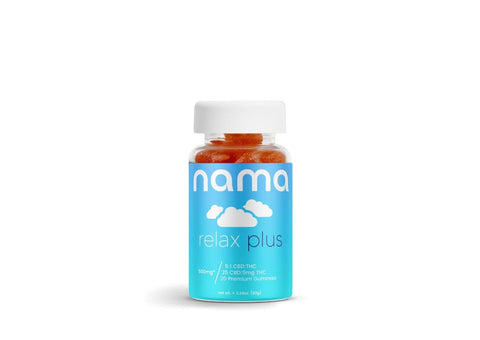
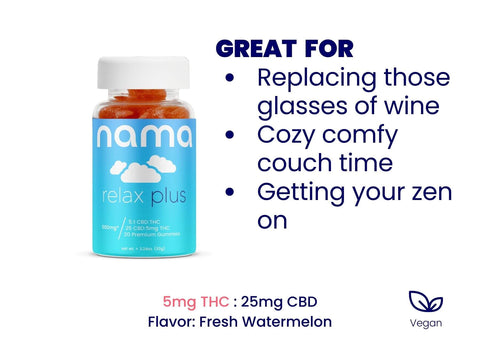
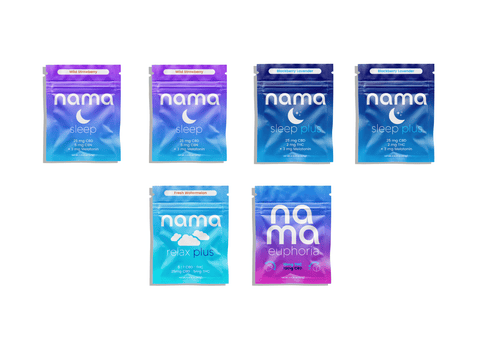
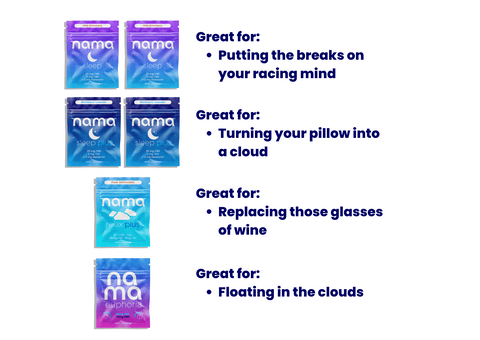
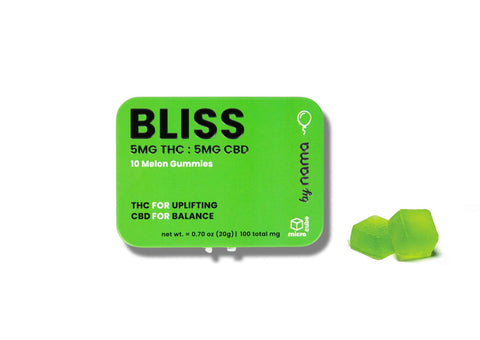
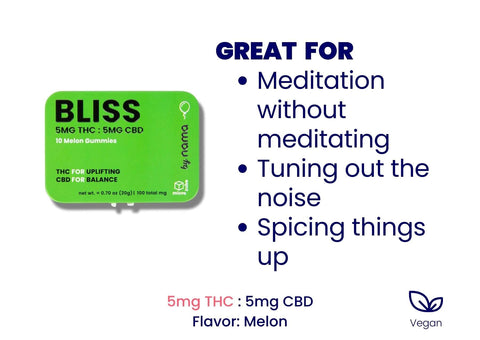
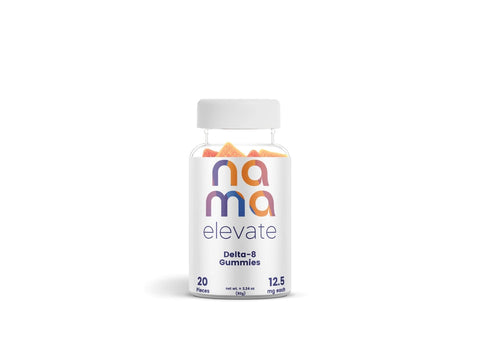
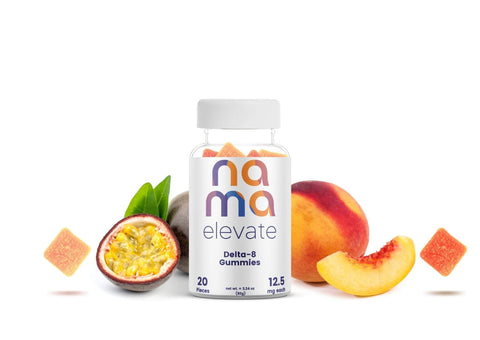
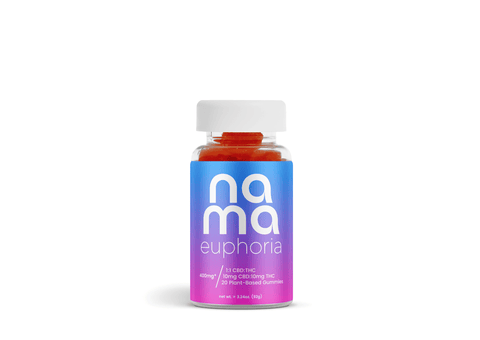
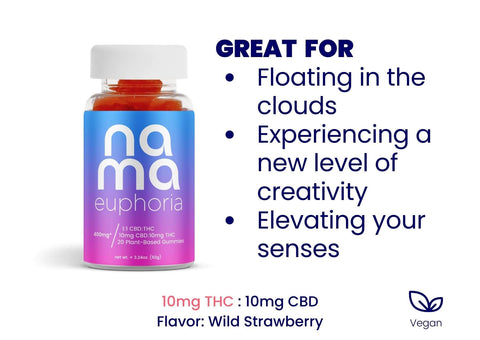
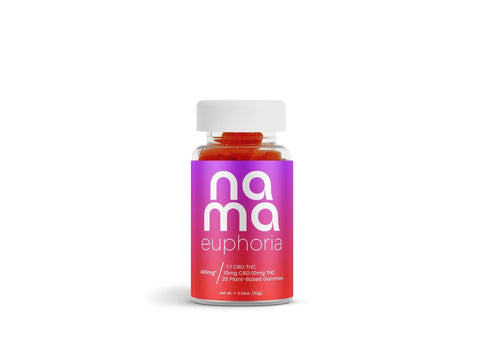
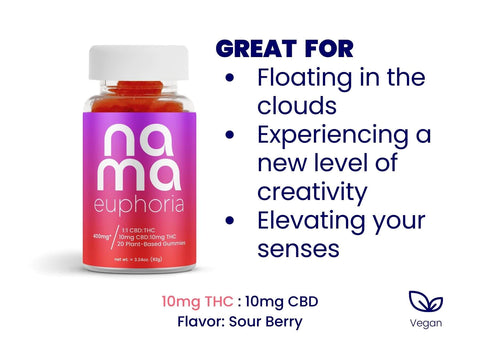









![Buzz Drops™ [THC Drink Drops]](http://www.namacbd.com/cdn/shop/files/nama_thc_buzz_drops.png?v=1711412866&width=480)
![Buzz Drops™ [THC Drink Drops]](http://www.namacbd.com/cdn/shop/files/buzz-drop-wine-comparison.png?v=1736882023&width=480)


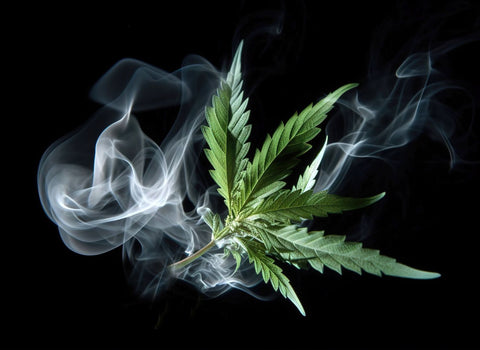



Comments (0)
There are no comments for this article. Be the first one to leave a message!